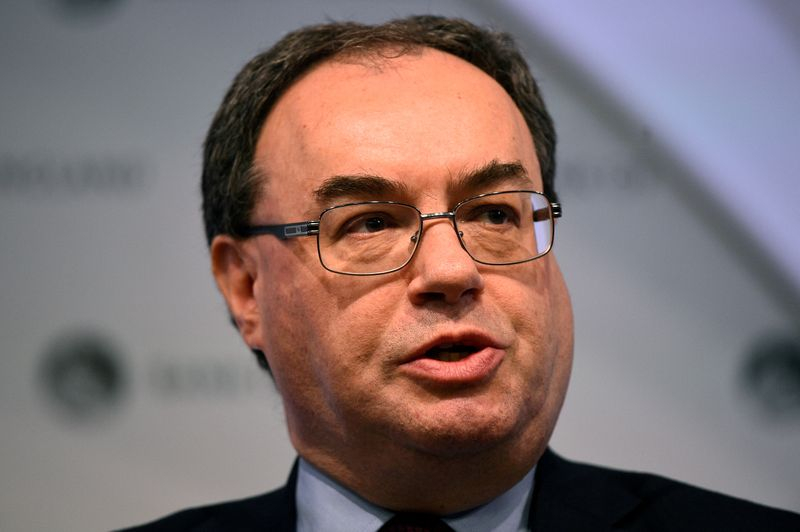BoE’s Bailey sees little long-term impact from inflation spike By Reuters

LONDON (Reuters) -Bank of England Governor Andrew Bailey said on Monday that he does not see long-term implications from an expected pick-up in inflation as the economy emerges from the coronavirus pandemic.
British inflation jumped to 1.5% in April from 0.7% in March, due to a mix of higher oil prices, rises in regulated household energy bills and comparisons against weak prices a year ago during the depths of the pandemic.
“The Monetary Policy Committee judges that these transitory developments should have few direct implications for inflation over the medium term,” Bailey said in an annual report to parliament’s Treasury Committee.
Bailey described public inflation expectations as “well anchored”. The BoE forecast this month that consumer price inflation would rise above its 2% target to 2.5% by the end of this year, before slowly falling.
Michael Saunders, an external member of the BoE’s Monetary Policy Committee appearing before the same committee, said he broadly agreed with the BoE’s central policy forecasts.
Supply chain pressures pushing up prices worldwide were likely to overstate the path of inflation in Britain, he said.
“This is likely to continue to be restrained for some time by spare capacity in the labour market, with relatively weak underlying wage growth and subdued service sector inflation,” he said.
BoE Deputy Governor Jon Cunliffe said he would be keeping a close eye on the labour market when government furlough support – which is currently paying the wages of more than 2 million employees – ends on Sept. 30.
“I would also want to see how pay and other price pressures – which have risen recently, but are difficult to interpret owing to distortions from the furlough scheme and compositional effects – respond to normalisation of economic activity,” he added.
Britain’s official jobless rate was 4.8% in the first quarter of 2021. The BoE forecasts joblessness will peak at 5.8% later this year, well below forecasts earlier in the pandemic.

